Blog
Have you Ever Wondered How Long it Takes for Waste to Decompose
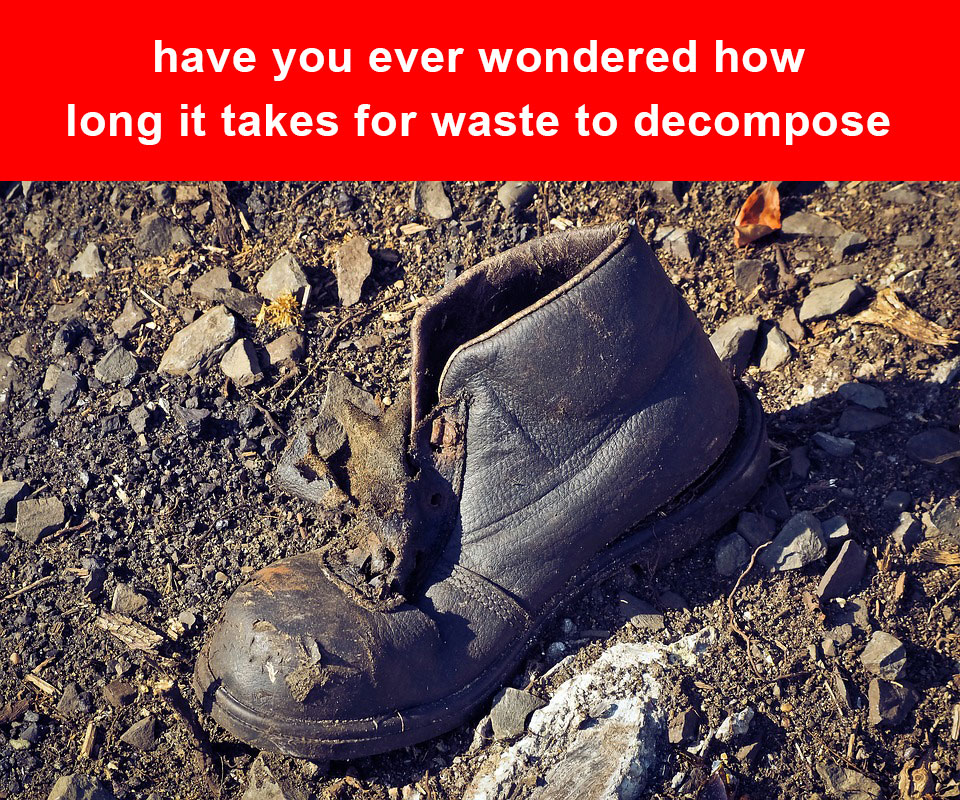
It’s no secret that different waste materials take different amounts of time to decompose. As a waste management company, we thought it’d be interesting to take a look at a range of common household products and their rate of decomposition. When left exposed to air and sunlight, this is how long it takes for these products to break down and be absorbed into the soil.
Loose-leaf paper
If you were to drop a single sheet of paper on the ground, it would take 2-4 weeks to be broken down and absorbed back into the environment.
Fruit and vegetable peels
Read more: Have you Ever Wondered How Long it Takes for Waste to Decompose
Why Healthcare Facilities’ Waste is Growing and how this Impacts our Environment
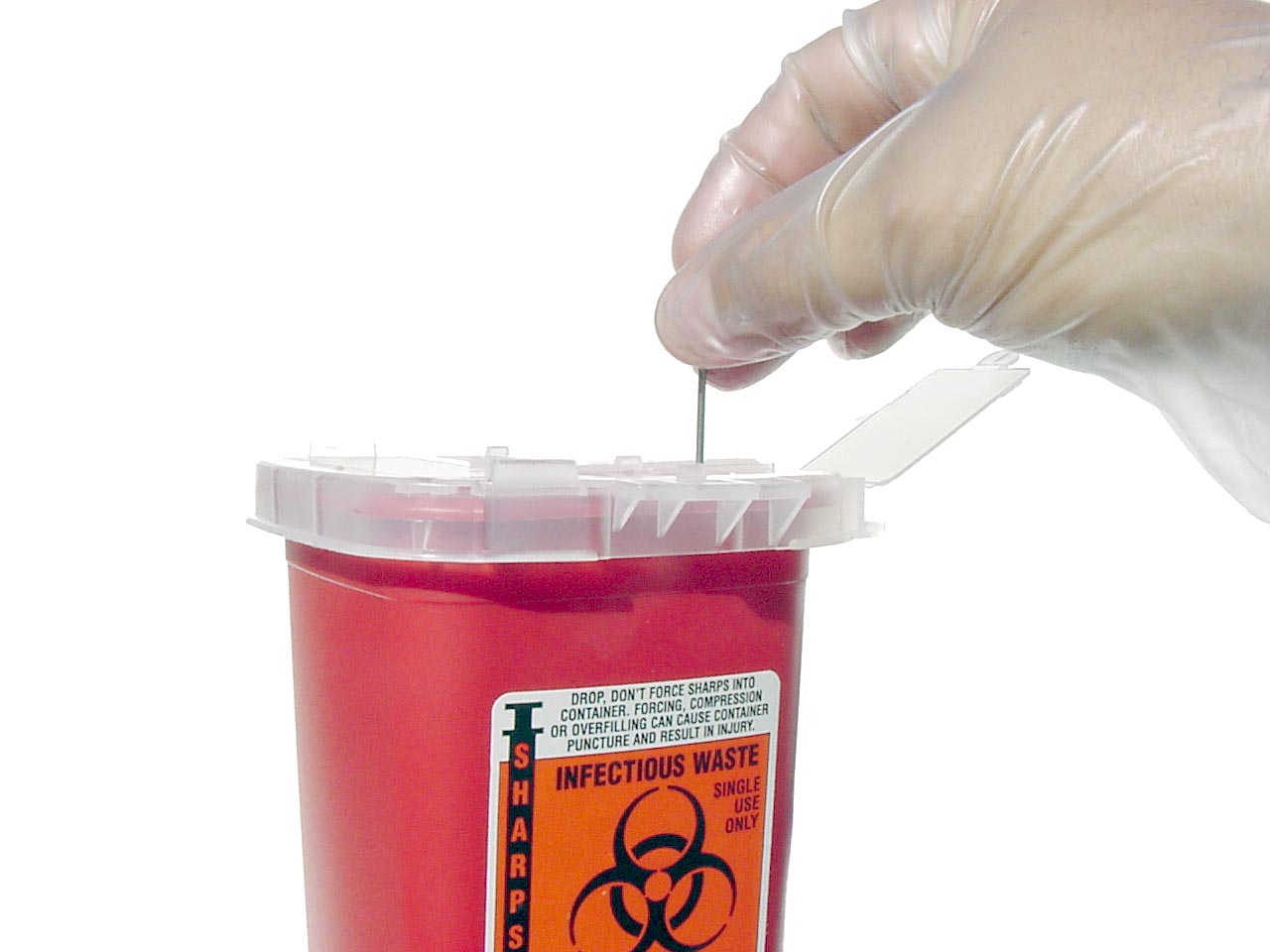
Clinical waste in Canada is an environmental burden rarely discussed in the media. As if there weren’t enough controversies and upset surrounding hospitals and similar healthcare facilities, environmental consequences of so much waste can be severe.
Healthcare waste is a threat to our living environment as well as our human health. In the United States alone, more than 4 billion pounds of healthcare waste is generated every year. Up to 70 percent of this happens in hospitals. What happens to this healthcare waste after pick-up is, usually, it gets steam treated which helps to decontaminate it. After this is completed, healthcare waste is dumped into landfills. Like other waste products, although healthcare waste can be treated to the point where it’s plainly safe, materials like surgical drapes and polypropylene do not biodegrade. A lot of healthcare waste will take centuries to decompose.
Read more: Why Healthcare Facilities’ Waste is Growing and how this Impacts our Environment
Can Construction Companies Complete their Work without Creating Waste – yes

Construction without waste doesn’t seem possible in Toronto’s culture of development and economic activity. Understandably, construction creates waste. When you’re building something, you oftentimes need to remove what’s already there and if the materials aren’t recyclable, waste’s created. Subsequently, as you’re building something, there are certain processes and techniques which create waste. It’s almost unavoidable and limiting waste output is incredibly challenging.
Keeping this in mind, there’s been gradual support for what’s called the ‘circular economy’. Circularity involves consuming products that are reusable or recyclable and maintaining an economy where little to no waste is produced. Thereby, products end up in this circular routine where they are used and then, reused, and then, reused again, and so on and so forth. In construction, there are also many materials that can be removed and reused from homes and commercial buildings. These materials are already a part of the circular economy and are not considered waste.
Read more: Can Construction Companies Complete their Work without Creating Waste – yes
19 Facts about Waste Management, Recycling, and our Future in 2019

Combing through data from the last year, here are a few interesting facts about waste management and recycling you might not be aware of.
The average Canadians throws away approximately three pounds of waste each day.
Analyzing the household waste we throw away, 38 percent of which is paper, 18 percent are plants, eight percent is metal, eight percent is plastics, glass is seven percent, food is seven percent, wood is seven percent, and ‘other’ is seven percent.
Read more: 19 Facts about Waste Management, Recycling, and our Future in 2019
Learning the Ins and Outs of Paper Recycling and Cardboard Recycling
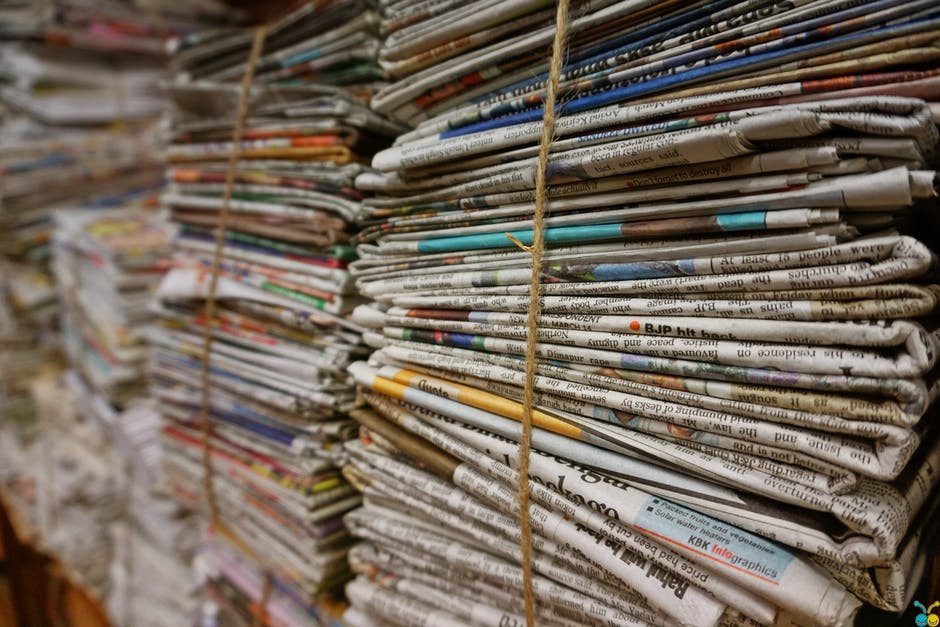
There are a lot of misconceptions about paper recycling and cardboard recycling. As useful as paper is as a material in manufacturing newspapers, magazines, books, and so much more, it’s also used in packaging for foods and so many goods. It’s the packaging where a lot of the recycling industry’s interest is at because there is so much of it. Although most paper can be recycled post-use, not all of it can be for several reasons.
Read more: Learning the Ins and Outs of Paper Recycling and Cardboard Recycling
Edmonton, AB struggling with Recycling Costs with no Place to put Paper and Cardboard
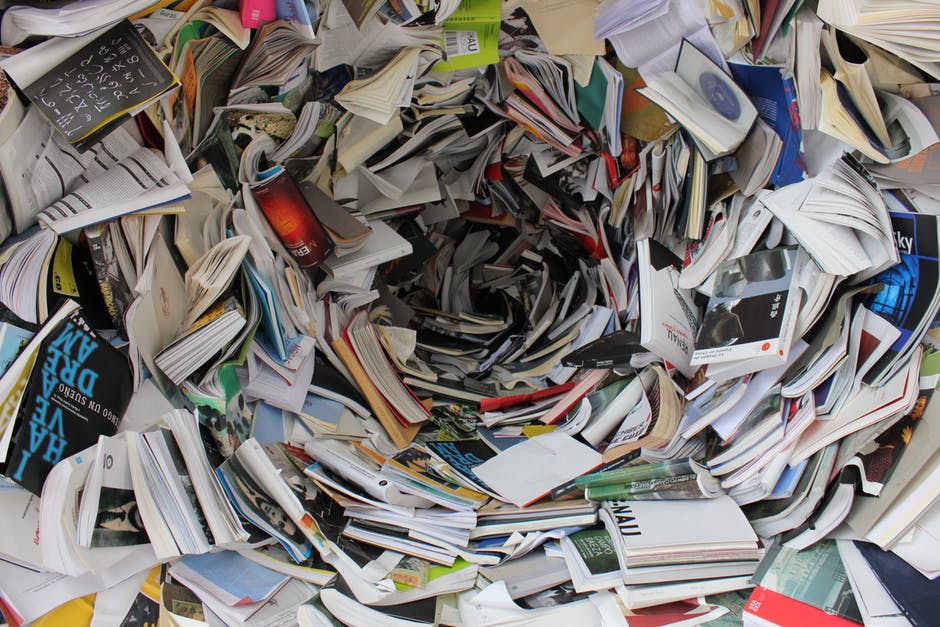
Similar to what other Canadian cities are going through, the City of Edmonton is perhaps worse off than the average. As the recycling market has become saturated with major players and facilities, and some industry stakeholders choosing to refuse to accept certain products, municipalities like Edmonton are struggling with how to collect and what to collect.
All of this trouble began in 2017 when China decided to ban acceptance of certain types of plastic recycling and paper recycling products. Now that Canadian cities no longer have the option of shipping these waste products off to China, that’s left them here with nothing to do. Increased recycling costs here in Canada make it unaffordable or unfeasible to process the volume of waste we have.
Read more: Edmonton, AB struggling with Recycling Costs with no Place to put Paper and Cardboard
Do you know what your Garbage Footprint is – Here’s How to Reduce
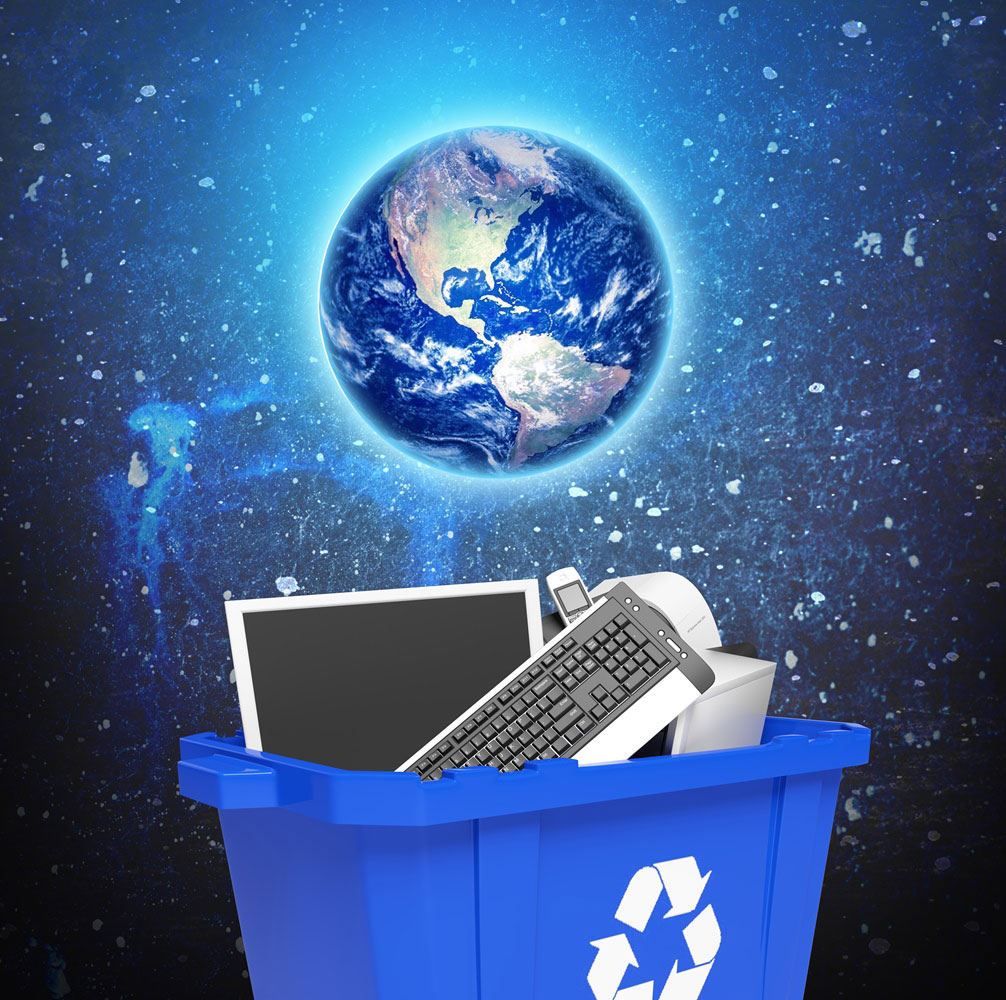
We all have a garbage footprint, just like the way we have a carbon footprint. For a lot of us, we may not know what our garbage footprint is nor how to measure it. I mean, there are so many different kinds of waste we create between work and home. Consider what you throw out on a daily basis. Consider the garbage that comes from your kitchen and bathroom. You may also have a garden. It all adds up to being quite a lot and usually, the average person may think the vast majority of this is largely unavoidable.
Read more: Do you know what your Garbage Footprint is – Here’s How to Reduce
What is the Best Way to Throw Away Common Household Junk in the GTA
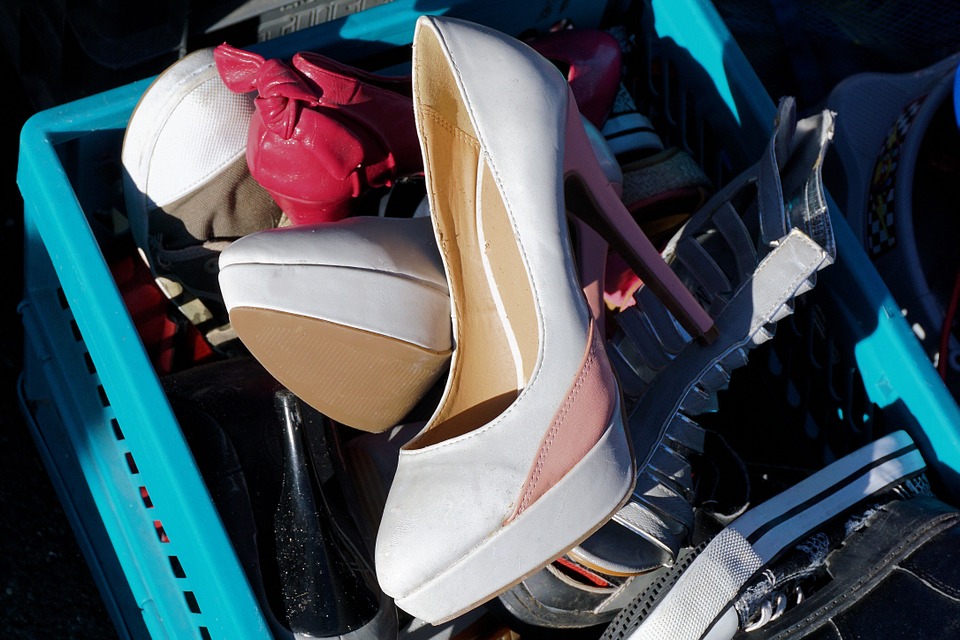
Every day, Torontonians produce and dispose of tons of waste. Among the biggest waste categories in Toronto are food and goods, paper and envelopes, cans and bottles, plastic bags, kitchen waste, junk furniture, and more. Compounding this is, naturally, the more people you have, the more waste you’re bound to produce. Accordingly, the City of Toronto is easily one of Canada’s most wasteful regions.
Analyzing per person waste rates across the world, we see how the more developed the nation, the higher the waste production is. This is similar to what we see across Canada with urban centres generating more waste on average than rural areas. At a more international level, the average United States’ resident creates 2 kg of waste per day as opposed to Europe where the per-person waste per day rate is 1.1 kg per day and in India where they produce 0.5 kg of waste per day.
Read more: What is the Best Way to Throw Away Common Household Junk in the GTA
Ensuring Proper Disposal of Office Paper Waste Products in Business

There are several different kinds of paper waste commonly produced in Canada. Corporate offices and small businesses in general tend to produce high amounts of paper waste. Ensuring proper disposal of office paper waste products in business, here are a few examples of the different kinds of paper and how they can be recycled.
There’s white ledger paper which is used for writing, printing, typing, and copy paper requiring only black ink. Certain qualities of book pages – separate from their covers and bindings – are allowed in white ledger recycling. Then there is colored ledger paper which contains any colors other than black. They generally exclude papers that are treated, coated, padded, or heavily printed.
Read more: Ensuring Proper Disposal of Office Paper Waste Products in Business
Can we Turn Christmas into a more Eco-Friendly Holiday in 2019 – we say yes!
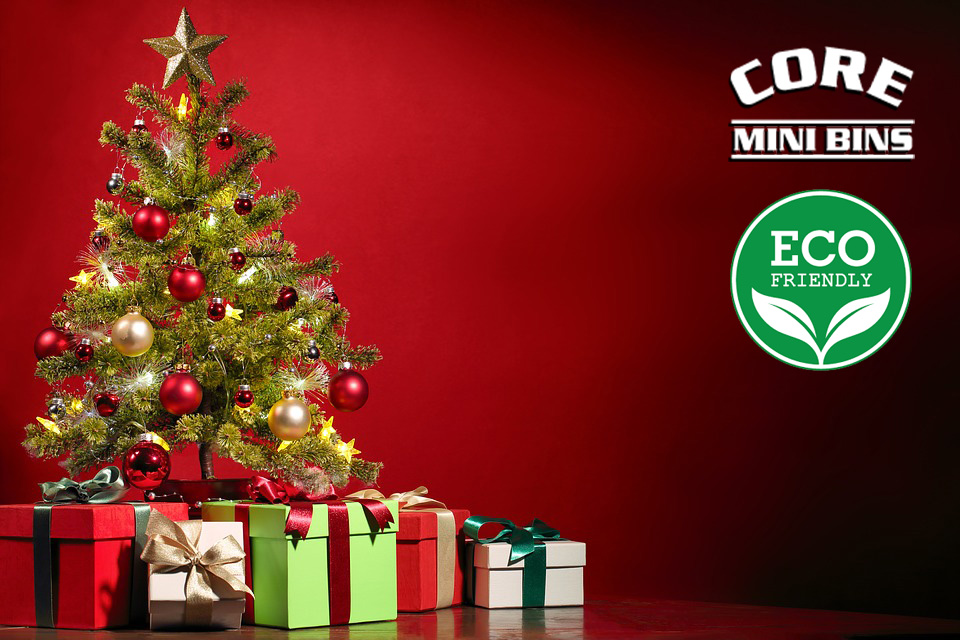
Christmas produces a tremendous amount of waste in Canada. Every year, there’s 500 tons of wrapping paper alone that gets tossed. For most families, they won’t think twice about the wrapping paper they use but across the many households who buy wrapping paper it adds up. There’s so much more holiday-based waste that is produced as well. Is there a way to make Canada’s Christmas more environmentally-responsible – we think so.
Read more: Can we Turn Christmas into a more Eco-Friendly Holiday in 2019 – we say yes!
How do we Dispose of Harmful By-Products and Hazardous Waste in Toronto – read here!

In the last two hundred years, one of the most harmful categories of waste human beings have produced is hazardous waste. Many of the environmental problems we face today are a direct result of more than 200 years of inappropriately managed industrial waste.
Across North America, there are more than tens of thousands of contaminated sites and at a much higher proportion than what exists elsewhere. The unfortunate thing is that to clean up these sites and restore them would cost billions of dollars – something which we cannot afford.
Read more: How do we Dispose of Harmful By-Products and Hazardous Waste in Toronto – read here!
Do we Recycle Electronic Devices – the Growing Responsibility of Tech Waste in Toronto
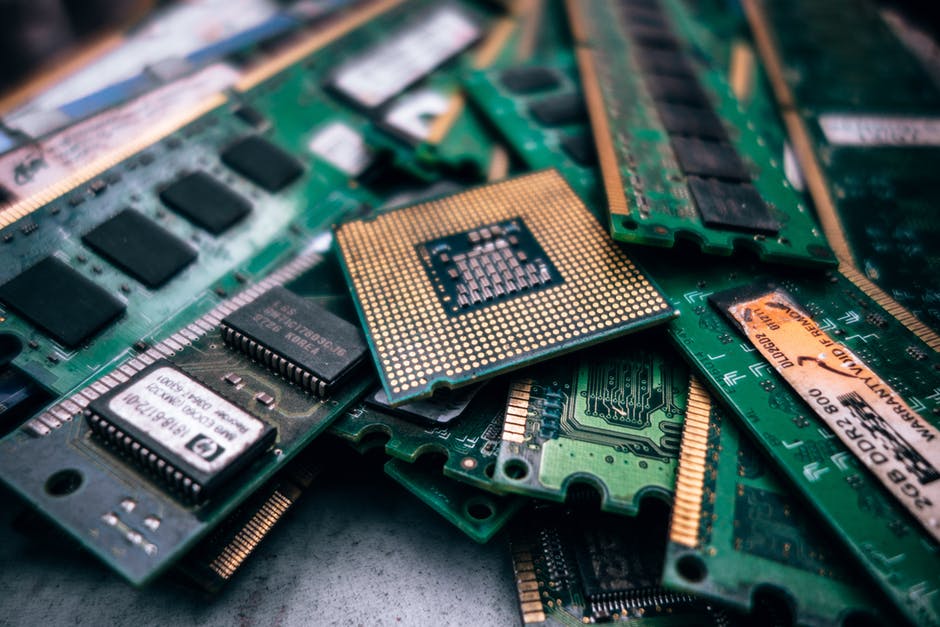
Electronics recycling is an underrated part of Toronto’s waste management and recycling industry. If you’re looking for a place to recycle or properly dispose of your computers or electronics, let us shine a light on exactly what to look for in a service.
For anyone with a lot of electronics to get rid of and/or if you’re going to be supplying a steady stream of electronics to recycle, you may want to meet with someone in-person at the processing facility.
Read more: Do we Recycle Electronic Devices – the Growing Responsibility of Tech Waste in Toronto
Are we Properly Recycling Christmas Waste – Knowing what’s Recyclable and what Isn’t

Christmas produces a lot of waste and knowing how to sort it is the key to ensuring what’s recyclable can be recycled.
After all the gifts are unwrapped, Christmas dinner has passed, and the lasting excitement of Boxing Day has been excused, what comes next is getting out all that waste. The sea of wrapping paper, ribbons, and packaging can oftentimes be accumulated together, tossed in a garbage bag and put out to the road.
As waste management experts, we can’t say it enough – resist the urge to do so. Here’s what can be recycled and what cannot be recycled from your Christmas waste in Toronto.
Read more: Are we Properly Recycling Christmas Waste – Knowing what’s Recyclable and what Isn’t
There is a Waste Crisis happening in the United States right now and No One Wants to Talk About It
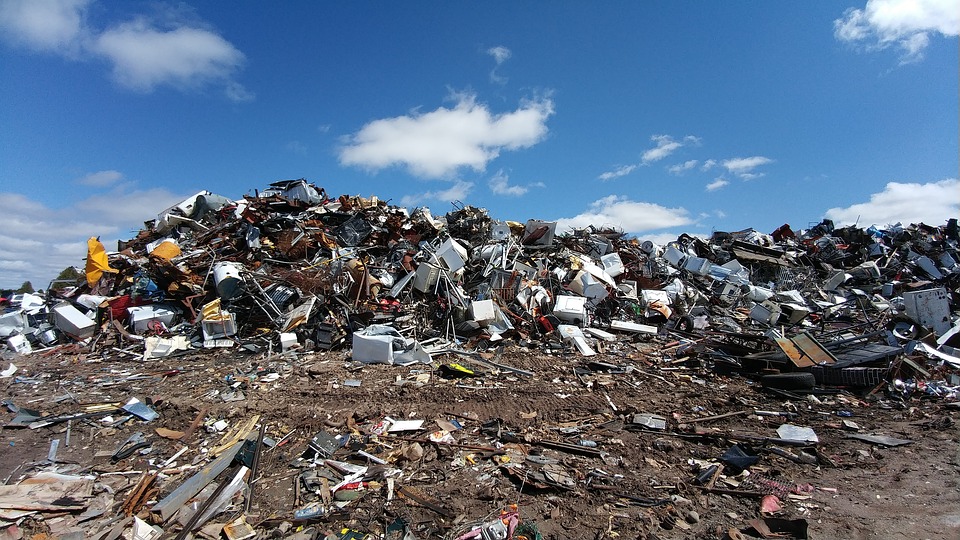
Waste, recycling, and trash are piling up, and the United States’ waste management industries have no idea what to do with it.
For decades, waste in the United States was collected and sent off to China. More than 4,000 shipping containers of recyclables were sent there every day. This past year though, China’s made some changes. By 2020, China’s put a ban on accepting foreign waste and has already begun turning away ships. The Chinese government recently instituted a ban on 24 types of waste, including paper and plastic which has left many waste management companies with piling mounds and nowhere to send them.
Is Renting a Bigger Bin the Right Move or are you Overpaying – read ahead!
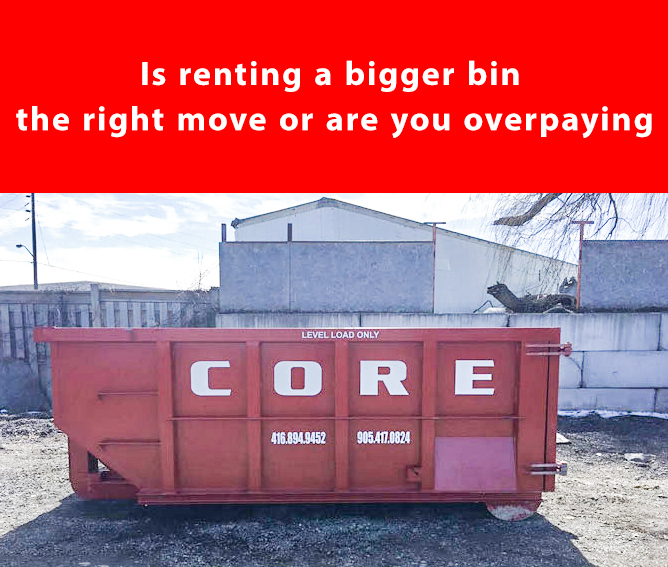
Bigger is not always better when it comes to renting a dumpster or renting a bin. Every day, we field requests from dozens of small businesses, corporations, and construction site managers seeking bin rentals.
At times, we’ve seen them make the mistake of renting a bin too small for operations, resulting in having to overpay on overage fees. Then, there are times when one rents a size too big resulting in perhaps money that could have been saved renting something more appropriate to the amount of waste produced.
Read more: Is Renting a Bigger Bin the Right Move or are you Overpaying – read ahead!
90 percent of Canada’s Plastics do not get Recycled – We Need a Change!
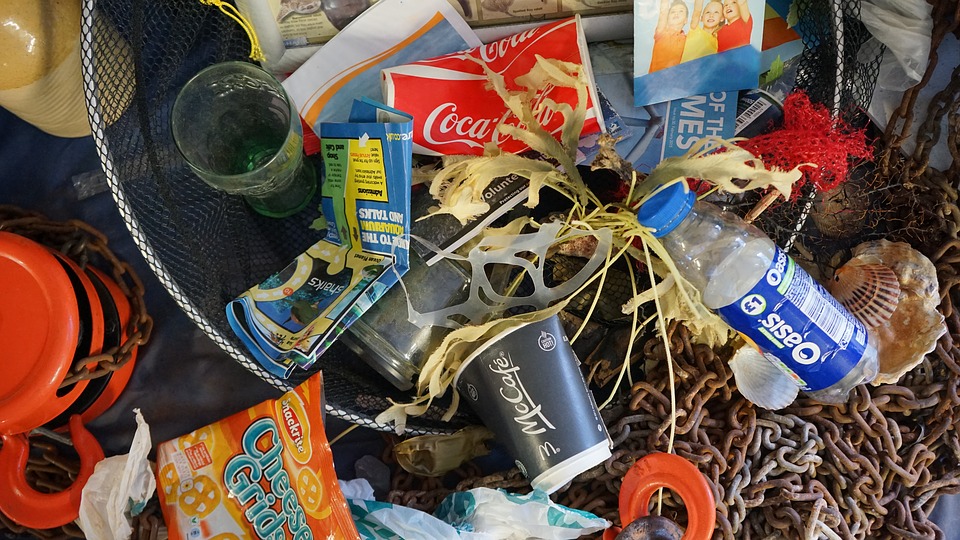
Canada continues to produce low recycling rates in the face of mounting plastic consumption and production. Although the federal government continues to debate how to move forward with its fight in favor of plastic recycling and minimizing the long-term impact of plastic production, there’s nothing concrete suggesting anything will change. To this day, up to 90 percent of Canada’s plastics do not get recycled.
Read more: 90 percent of Canada’s Plastics do not get Recycled – We Need a Change!
Get rid of the Headache of Completing a Renovation or Moving Condos this Winter with High Quality Junk Removal in Toronto

Although most Torontonians will choose to wait until spring or summer to conduct a renovation, some things can’t wait. The same can be said about moving condos. Despite cold, unforgiving winter weather, these events still happen from November through March. If you’re in need of waste management, recycling, junk removal, or a dumpster or bin rental this winter 2018-2019, don’t hesitate to contact Toronto’s favourite junk removal service, Core Mini Bins.
Do you Need Construction Waste and Concrete Removal in Toronto – Call us!
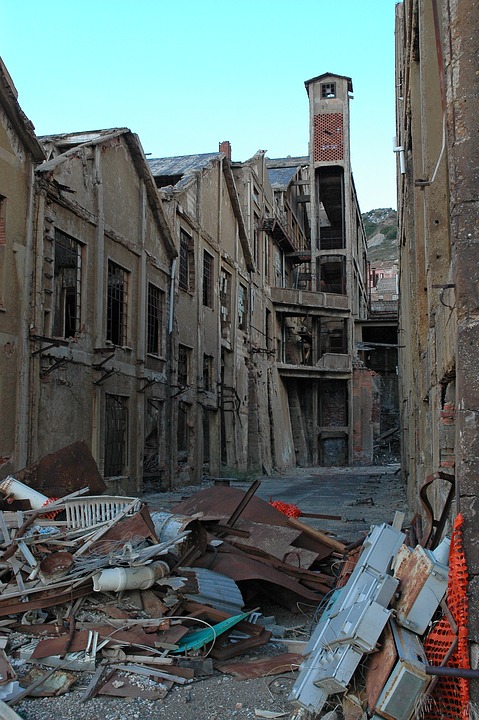
As winter sets in throughout Toronto, you may want to ensure you have arrangements in place ensuring your construction waste and/or concrete removal plans are handled. No residential or commercial stakeholder wants to be left without a way forward, as it pertains to mounting construction waste or piles of broken concrete.
As a construction waste removal company in Toronto, we’ve assisted across a wide array of projects ranging from simple kitchen renovations to whole new residential home constructions. Needless to say, in developing property, large amounts of waste are always going to be created. It’s unavoidable. Having a place to put this waste prevents it from moving off-property and/or getting stacked up in some unattractive, sometimes dangerous ways.
Read more: Do you Need Construction Waste and Concrete Removal in Toronto – Call us!
5 Hazardous or Toxic Things you Should Never Throw in the Garbage
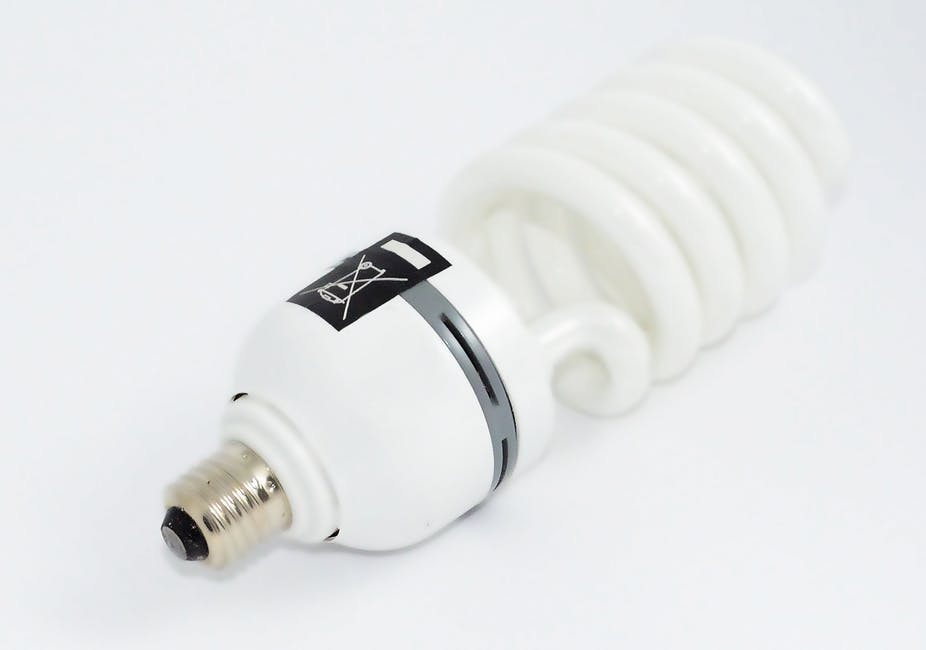
There’s no reason for toxic waste to continue to end up in our landfills here in Ontario. As part of the campaign to improve landfill diversion rates and to ensure toxic waste is being processed appropriately, here’s a quick list of five toxic things to never throw in the garbage. Help us prevent some of the more toxic household waste items from having to enter our landfills.
Read more: 5 Hazardous or Toxic Things you Should Never Throw in the Garbage
Can UK’s ‘Waste to Wealth’ Policy Work Here in Canada – Ask Nestle and Burger King
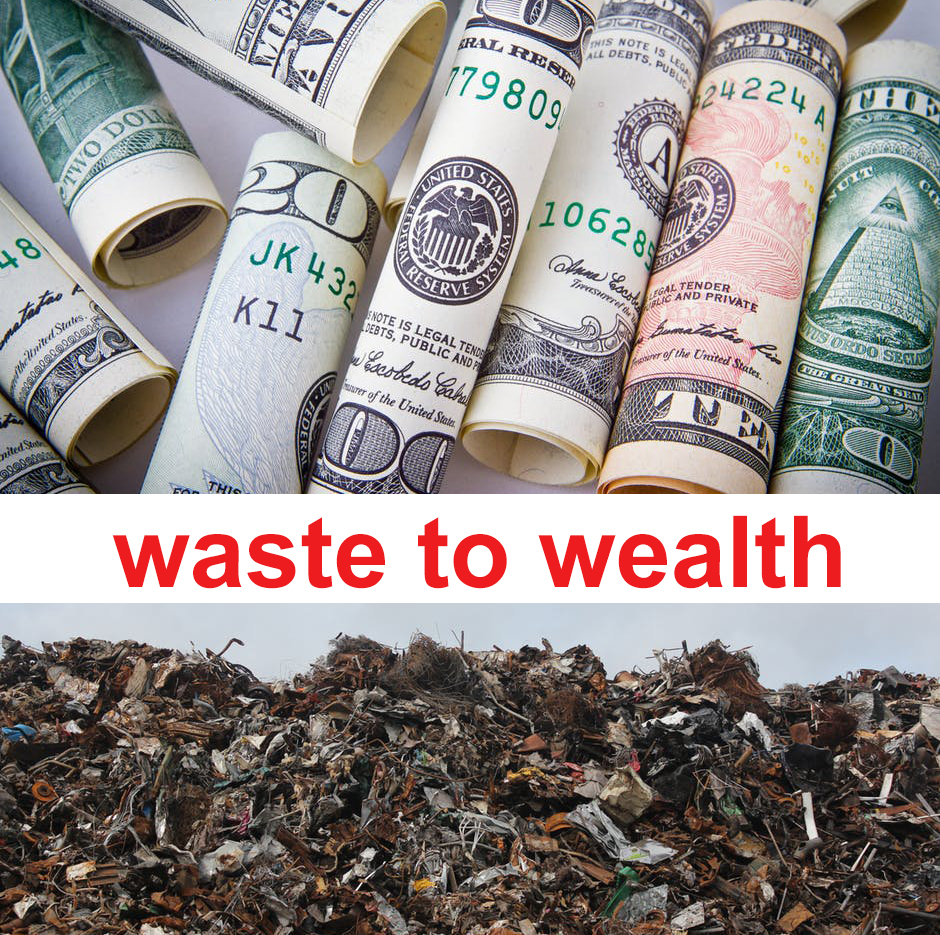
The ‘waste to wealth’ initiative in the UK is bringing some of the world’s biggest brands to the table in efforts to revolutionize the waste management industry. Could a similar policy work here in Canada – we certainly think so!
The waste to wealth concept is built around the belief that the world has as little as one more decade to make the changes we need to make to prevent significant changes in our climate. Waste to wealth brings together stakeholders from the corporate and business community with government, academic leaders, and civil society. All of these efforts are to find opportunities to improve the UK’s resource productivity while reducing all avoidable waste by the year 2030.
Read more: Can UK’s ‘Waste to Wealth’ Policy Work Here in Canada – Ask Nestle and Burger King
Are we Moving our Recycling Diversion Rates in the Right Direction in Canada – read here!
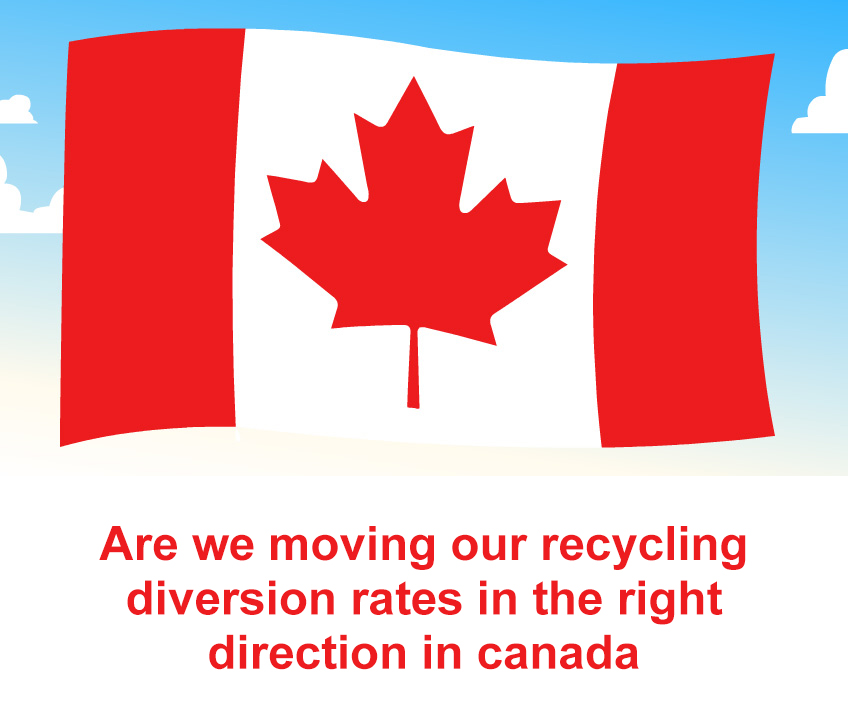
According to a 2018 report, Canada has a lot to work on when it comes to its rate of waste per person. Compared to other high-income countries, Canada ranks as one of the worst waste producers, analyzed on a per-person basis.
The average Canadian produces up to 2.2 kg of waste per person every single day. If this report is to be believed, Canada has a worse rank than Kuwait, Switzerland, Israel, Germany, the Netherlands, Saudi Arabia, Sweden, South Korea, and Japan.
Read more: Are we Moving our Recycling Diversion Rates in the Right Direction in Canada – read here!
3 Benefits of Hiring a Toronto Garbage Bin Rental Company
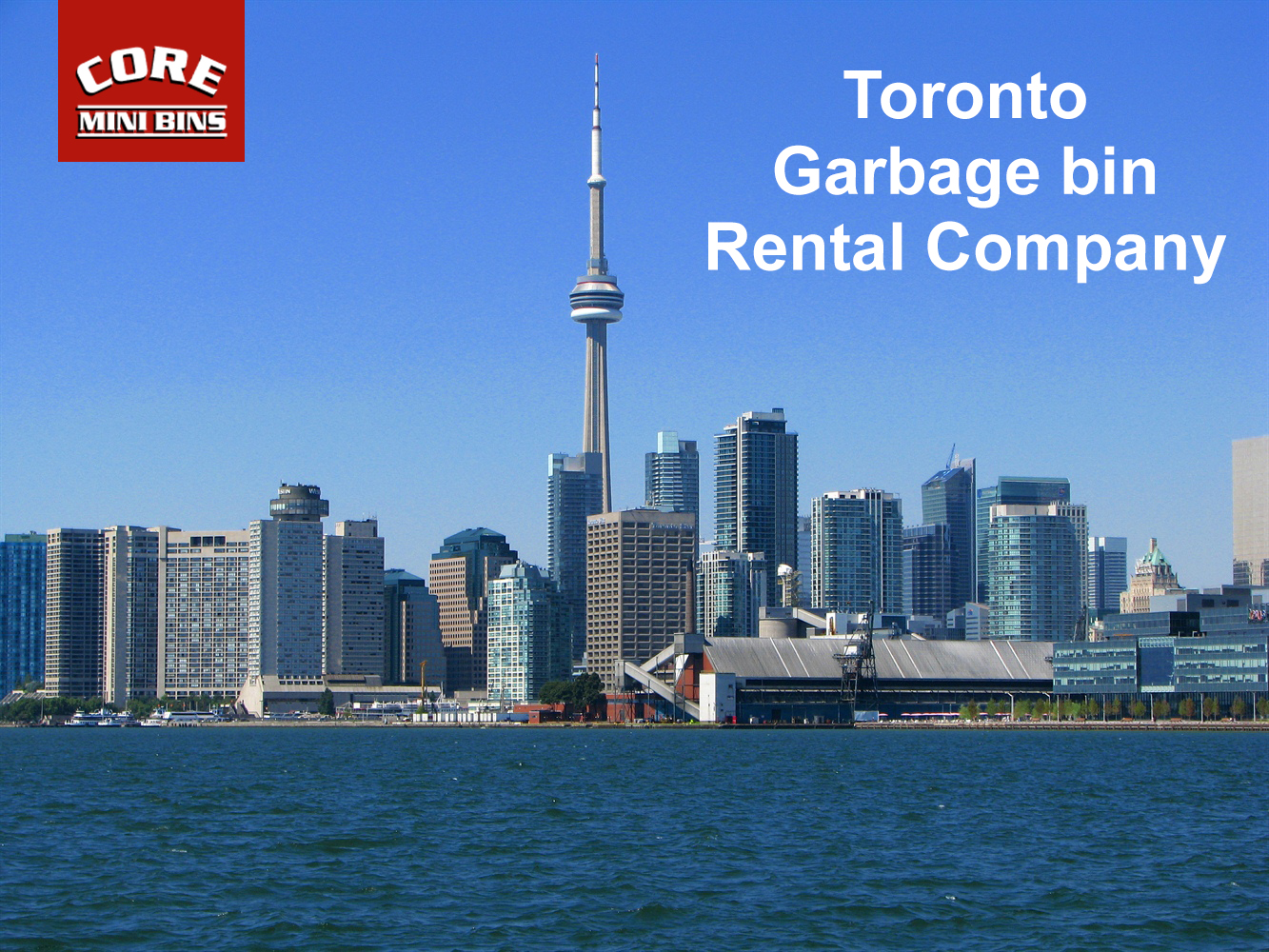
Completing a home renovation creates a lot of waste that needs to be disposed of. A possible solution is a garbage bin rental. Clean, easy, and affordable, you won’t have to worry about a thing.
Dumpster bin rentals are the preferred option Toronto homeowners use when they need to rid themselves of the garbage left behind by a home renovation, when they need to clean out the garage, or when they’re working on a small construction project.
Read more: 3 Benefits of Hiring a Toronto Garbage Bin Rental Company
Sorting Waste and Recyclables in Toronto is not as Straightforward as it Seems
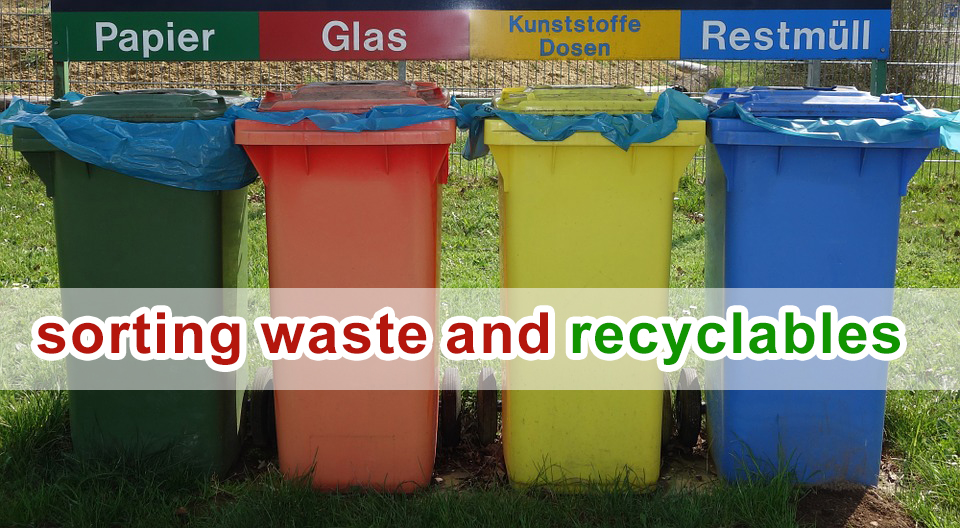
You wouldn’t think trash and recyclables would be so difficult to tell apart however processing plants in Toronto beg to differ. Across the City, there’s no question there’s uneven education on what ‘waste’ is and what is ‘recyclable’.
In our experience, Torontonians routinely cross-contaminate recycling with waste and subsequently end up tossing away recyclables. This is just the beginning of the obstacles the city faces regarding how to recycle and how to simplify its complex waste management system.
Read more: Sorting Waste and Recyclables in Toronto is not as Straightforward as it Seems
If we Reduce Single-Use Product, can we Hit Zero Waste today in Toronto – it’s a possibility
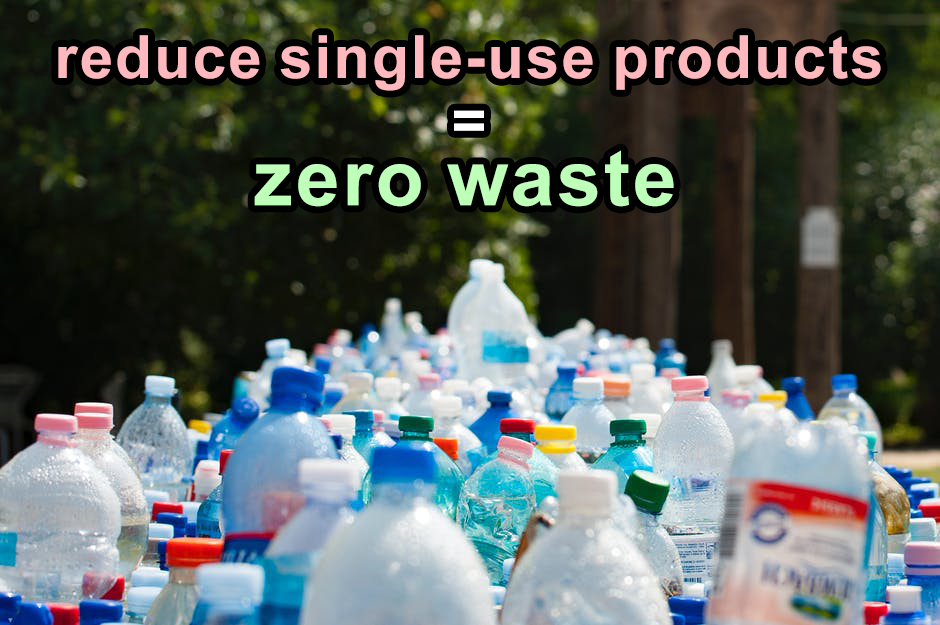
Single-use items are the biggest threat towards a zero waste future. As attractive as disposables may have once been, they struggle to have a purpose in an environmentally-friendly world.
Single-use waste reduction strategies are becoming the norm in municipalities across Canada, including here in Toronto. Now that recycling has been adopted as a mainstream waste management idea, single-use items have no value to a world centered on maximizing its recycling power. They also only serve to inflate waste diversion percentages, which are commonly used to measure the sustainability of a region’s landfills.
A Brief 2018-2019 Recycling Market Report for Ontario, Canada

Since 2017, major changes have happened in Canada’s recycling markets. Though some are positive, the negatives have led to a decline in global recycling commodity prices which has greatly impacted Canada’s abilities to recycle.
In some examples, value of materials has collapsed to zero and in select cases, there’s even negative value per metric tonne. Declines in cardboard and mixed in particular have shown to produce a lower value than preferred. While understandable how commodities in recycling have a value which fluctuates according to market forces, the industry is still reeling from big cuts.
Read more: A Brief 2018-2019 Recycling Market Report for Ontario, Canada


